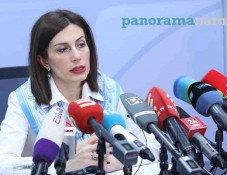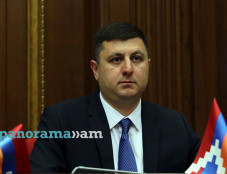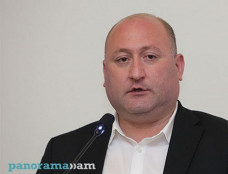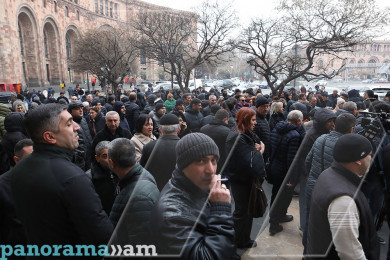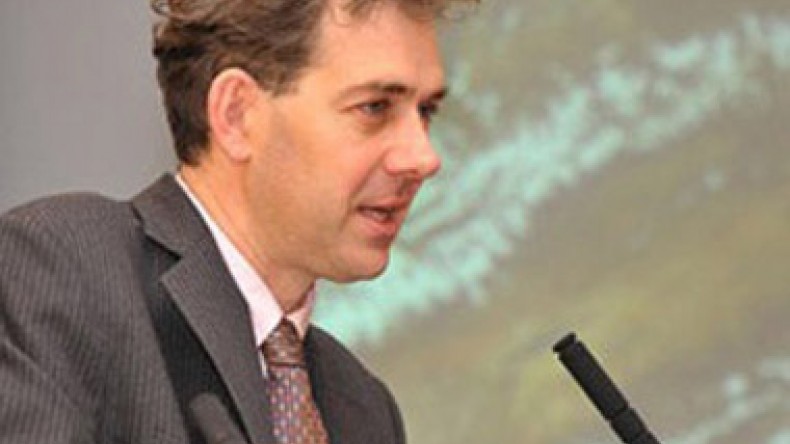
Thomas de Waal: Azerbaijani authorities speak of thousands of Armenians who would live in Baku but in the same time bait Eylisli
Ekrem Eylisli’s novel is a brave act for the writer, thinks the famous British journalist, author of “Black Garden-Karabakh,” Thomas de Waal. In an interview with the Azerbaijani service of “Radio Liberty”, he noted that Eylisli wrote the novel "Stone Dreams" not as a politician or journalist but as an artist, as a writer.
“He expressed his vision in fiction. He said that “the society in which I live, has also committed wrong things, that’s why we are responsible for it, and it must be recognized,” de Waal noted.
Answering the question, how he perceives the outrage in Azerbaijan over Eylisli’s novel, which suddenly broke the taboo by talking about violence of the Azerbaijani side during the conflict, and began to call upon the parties to come to peace, de Waal answered, “This speaks about the fact that the Azerbaijani society is not ready to analyze the history and problems. And the most important thing is that it is a characteristic phenomenon for two sides of the conflict both the Azerbaijani and the Armenian society.”
“Unfortunately, instead of encouraging Eylisli as brave citizen, they subjected him to pressures, burnt his books. The anger of few people is sensible. However, the fact that Azerbaijani government is heading the campaign launched against Ekrem Eylisli is regrettable. The Azerbaijani government likes to talk about peace, he even recalls how peacefully thousands of Armenians lived in Baku. Unfortunately, the pressure on the writer who bravely comments on the conflict, brings to another impression delivering diverse message,” the expert said.
The expert, answering the question how the fact that state TV transmits speech full of hatred against Ekrem Eylisli, the fact that the president of Azerbaijan has deprived him of the title of “National Writer” and the head of one of the pro-governmental parties announced a reward to the one who cuts the writer's ear, influences the international image of Azerbaijan, said that such behavior of Azerbaijani authorities reminded of the scandal that erupted in Soviet period over the novel written by Boris Pasternak “Doctor Zhivago” or the ban over Salman Rushdie’s books.
De Waal also noted that the Azerbaijani authorities are likely to think more about the domestic audience, but in our time, such questions do not remain within the borders of the country. And the government should be concerned about the image of Azerbaijan in the whole world. “In all cases, this is a regrettable phenomenon. Ekrem Eylisli presents the tolerant layer of Azerbaijani society. Unfortunately, his voice was not heard,” he said.
De Waal said that different arguments can be presented during the debate, about the wounds of war in that number, “However, this debate should be expressed in a polite form, be presented on television, in newspapers. The burning of books, however, is a result of primitivism and ignorance,” the expert said.
As De Waal mentioned the OSCE Minsk Group includes in its mandate also the support of those people who call on for peace.
“I am not sure in which format they can do it in case of Eylisli. But I think that any statement made by the OSCE Minsk Group would be just on time, especially when there are threats that endanger the life of Ekrem Eylisli. Perhaps this can be done by the countries co-chairing in the Minsk Group separately. Just as in case of the statement released by the White House about Ramil Safarov,” De Waal stated.
The British expert cited example of Azerbaijan’s neighboring country Georgia where a few years ago, the local political analyst Mamuka Arashidze said that probably Georgia should recognize Abkhazia’s independence. His remarks caused outrage among the Georgian society, the TV channels began criticizing him. But this controversy did not go beyond verbal squabbles, no one threatened to kill the politician. De Waal said that Azerbaijan has sometimes to take the example of Georgia which has had the same problem and to see how they react to different opinions there.
“Aylisli’s case showed that the society is not ready for peace yet. We can see that in recent years, the process repeats by the same scenario. Co-Chairs come with a plan, but the parties do not consider it acceptable and the process continues, it repeats as if in a vicious circle. Apparently, the main goal has become not so much reaching a peace but prevention of a new war,” Thomas de Waal summed up.
Newsfeed
Videos








